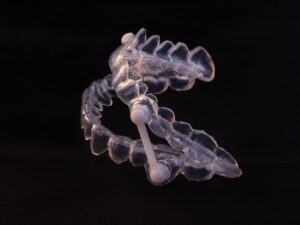 Do you often wake up with a drool spot on your pillow? Everyone drools occasionally, especially when battling nasal congestion. However, if you often get up in the morning with drool on your pillow or saliva dried on your chin, it may be a sign of sleep apnea. The disorder causes frequent breathing disturbances while sleeping. Although drooling and sleep apnea may seem like two separate issues, they are often connected. Here’s how sleep apnea therapy can stop you from drooling.
Do you often wake up with a drool spot on your pillow? Everyone drools occasionally, especially when battling nasal congestion. However, if you often get up in the morning with drool on your pillow or saliva dried on your chin, it may be a sign of sleep apnea. The disorder causes frequent breathing disturbances while sleeping. Although drooling and sleep apnea may seem like two separate issues, they are often connected. Here’s how sleep apnea therapy can stop you from drooling.
What is Obstructive Sleep Apnea?
Obstructive sleep apnea is a condition that results in breathing disruptions while sleeping. An obstruction is created by the tissues in the back of the mouth or the tongue falling back and collapsing when sleeping. Every breathing disruption depletes your body of oxygen, which can lead to various potentially deadly health issues with no treatment, like cardiovascular disease and diabetes. It can also affect your sleep quality, which can have negative consequences for your mental and physical health.
How is Drooling Connected?
Patients with untreated sleep apnea often breathe with their mouths open while sleeping. This can cause saliva to run out of your mouth. Besides drooling, loud chronic snoring is also a complication of sleep apnea, which also contributes to drooling.
Treating Sleep Apnea and Drooling
Sleep apnea therapy can help you get a good night’s rest by breathing better. As a result, you’re less likely to breathe through your mouth, so you’ll drool less often. You also won’t have to worry about chronic snoring with the right treatment.
A CPAP machine is the most traditional method of treating sleep apnea. Pressurized air is delivered through masking more over the mouth or nose to prevent breathing disruptions. Although it is effective, some patients may find it bothersome.
As an alternative, you may be a candidate for an oral appliance. The custom-fit device positions your jaw and tongue to prevent blockages in the upper airway. It is effective for mild-to-moderate cases of obstructive sleep apnea. It can also be used along with a CPAP.
You may experience more drooling when first using an oral appliance, but the issue will be temporary. As you get used to wearing the device, drooling it will become less frequent. Sleeping on your back can prevent you from drooling because you will swallow your saliva instead of allowing it to freely flow from your mouth.
With help from a sleep specialist, you can sleep peacefully to wake up feeling refreshed and ready to start your day, without having to throw your pillowcase in with your laundry.
About Dr. Dean Hutto
Dr. Hutto earned his dental degree from the University of Texas Dental School and has continued his training to focus on dental sleep medicine. He offers the latest solutions to treat snoring and sleep apnea, including oral appliances. Dr. Hutto is a proud member of several professional organizations, including the American Academy of Dental Sleep Medicine. Request an appointment through his website or call his office at (218) 688-2104.
